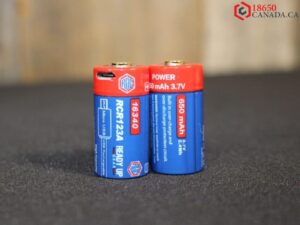How Temperature Affects the Performance of 18650 Batteries
The impact of temperature on the performance of 18650 batteries cannot be overlooked. Proper temperature management is crucial to optimize battery life, ensure reliable operation, and minimize potential risks.
18650 batteries are rechargeable lithium-ion batteries that have a high capacity, long life, and low self-discharge. They are commonly used in various devices that need high power, such as laptops, flashlights, and electric vehicles.
However, these batteries are also affected by temperature changes, which can influence their performance and safety. Therefore, it is important to know how temperature affects 18650 batteries and how to keep their optimal temperature.
Extreme temperatures, both high and low, can have adverse effects on the performance and longevity of 18650 batteries. High temperatures accelerate chemical reactions within the battery, leading to accelerated capacity loss and reduced overall efficiency.
This can result in shorter runtime and decreased performance, affecting the functionality of devices relying on these batteries. Moreover, excessive heat can even pose safety hazards, increasing the risk of thermal runaway or battery failure.
On the other hand, extremely cold temperatures can cause temporary reductions in battery capacity and discharge performance. The internal resistance of the battery increases, making it harder for the battery to deliver power effectively. This can lead to diminished runtime and diminished performance in cold environments.
To ensure optimal performance and extend the lifespan of 18650 batteries, it is essential to follow proper temperature management practices. Avoid exposing the batteries to extreme heat sources such as direct sunlight, ovens, or hot surfaces. Similarly, protect them from freezing temperatures by keeping them insulated in cold conditions.

Monitoring battery temperature is also crucial. Many devices and chargers come with built-in temperature sensors or protection mechanisms that prevent charging or discharging at extreme temperatures. Pay attention to these safeguards and heed any warnings or recommendations provided by the manufacturer.
In situations where temperature management is critical, such as in high-performance applications or extreme environments, thermal management systems can be employed. These systems help regulate battery temperature by dissipating heat or providing additional insulation as needed.
By prioritizing temperature control and adhering to best practices, you can unlock the full potential of your 18650 batteries. Not only will you maximize their performance and lifespan, but you will also promote safety and reduce the risk of unexpected failures.
Remember, understanding and managing the impact of temperature on 18650 batteries is key to ensuring their reliable operation and deriving the most value from these powerful energy storage devices.
What Are The Effects Of Low Temperatures On 18650 Batteries?
Low temperature can have a negative effect on 18650 batteries, such as lowering their capacity, increasing their internal resistance, and delaying their charging time. Some of the reasons for these effects are:
• Lowered Capacity:
Low temperature slows down the diffusion and reaction rate of lithium ions in the battery, resulting in lower available charge and discharge capacity. It has been reported that at -40°C a commercial 18650 battery only delivered 5% of energy density and 1.25% of power density, as compared to the values obtained at 20°C.
• Increased Internal Resistance:
Low temperature increases the viscosity and resistance of the electrolyte solution in the battery, leading to higher internal resistance and voltage drop. This reduces the power output and efficiency of the battery.
• Delayed Charging Time:
Low temperature reduces the charging current and voltage of the battery, making it harder to reach the full charge state. This delays the charging time and may cause undercharging or overcharging problems.
What Are The Effects of High Temperature On 18650 Batteries?
High temperature can also have a negative effect on 18650 batteries, such as shortening their life span, increasing their self-discharge rate, and causing their thermal runaway. Some of the reasons for these effects.
• Shortened Life Span:
High temperature accelerates the aging and degradation of the battery materials, such as the electrolyte solution, the separator membrane, and the electrodes. This reduces the capacity and cycle life of the battery. It has been reported that once the temperature is above 25°C, the capacity of the battery fades and the internal resistance increases with increasing temperature.
• Increased self-discharge rate: High temperature increases the chemical activity and reaction rate in the battery, resulting in a higher self-discharge rate and lower storage capacity. This reduces the available energy and performance of the battery.
• Caused thermal runaway: High temperature can trigger a positive feedback loop in which heat generation exceeds heat dissipation in the battery, leading to a rapid increase in temperature and pressure.
Final Thoughts
Temperature plays a significant role in the performance of 18650 batteries. It is crucial to understand and manage the impact of temperature to maximize battery life and optimize overall performance. Extreme temperatures can lead to capacity loss, reduced efficiency, and potential safety hazards.
By following proper guidelines for temperature management, such as avoiding extreme heat or cold, monitoring battery temperature, and utilizing thermal management systems when necessary, you can ensure the longevity and reliable performance of your 18650 batteries. Remember, temperature control is key to unlocking the full potential of these powerful energy storage devices.

